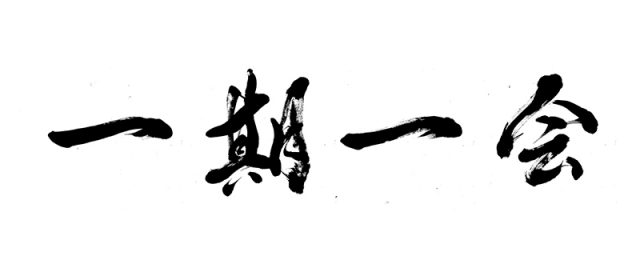Perhaps the biggest buzzword in rope today is “connection.”
It is a difficult concept to put into words and even more so to teach. When people use the word connection, it is often a placeholder for a vague sentiment shared by rope partners that defies simple expression, a point of agreement that both people felt something, perhaps that the scene had powerful emotion, or that they experienced something beyond just sensation.
This is my effort to put into words what I mean when I talk about connection. It is my own personal reflection and for that reason alone probably idiosyncratic.
For me, connection has two components. One is the experience itself, the other is what I put into that experience and take away from it.
In Japan there is a saying “ichi go ichi e” (一期一会 “one time, one meeting”) which has the sense of “once in a lifetime” or “never again” and it is often used to express the depth of meaning in valuing your time with other people. For me, connection in rope has that quality. When I am connecting through rope, it is with an awareness that the moment is for us, that is will never happen again, and that we are only together for the moment. That moment will reflect itself both into the past and color the future, as all events do, but this rope scene is our time together, never to be duplicated.
In that sense, every rope meeting is an opportunity. What we pour into that moment, for me, defines the concept of connection. When I think about my own personal sense of connection (and this, of course, can and should vary for everyone), the three things that have the most meaning to me are these: Honesty, Trust, and Vulnerability.
Honesty, at some level, requires a certain level of self-awareness. For me, connection begins with an honest expression not of what people want or do, but of who they are. Rope, like nothing else for me, can expose that. When I tie, I am opening myself up to an experience that reveals something very deep about who I am. It is about sexual fantasy, about desire, specifically about my desire. Bringing that honesty out of my partner is something I value as well. I want a partner who doesn’t hide that or try to be something she is not. I value an honest expression in my rope and I try to offer an honest expression of myself through my rope. But that is just the starting point.
There must also be a level of trust between people. The sense that it is OK and safe to share that honesty. Honest expression without the fear of rejection is a cornerstone of connection. With trust, anything is possible. Without it, nothing is.
Which leads to the third, and most dangerous, element of connection: vulnerability. If there is honesty and trust, we are inevitably in a place of vulnerability. For me, as a bakushi, connection is about shedding expectations and a certain measure of certainty and security for the risks and rewards that come from making myself truly vulnerable to another.
It is easy to think of the bottom as the vulnerable person. They are, after all, tied up and helpless. But that is only a small part of the vulnerability to which I am referring. Vulnerability is less a physical state than a psychological one. At my best, when I tie, I hope my partner can truly feel me: my passion, my desire, my fantasy. They are getting a glimpse at my psyche without filters, without restriction, and without the everyday noise that prevents people from truly communicating with one another.
For there to be connection, that vulnerability must be reciprocal. I want to experience my partner unfiltered. In some cases, rope allows me to do that. There is no guarantee that I can elicit that. In that sense, the possibility for connection starts with the bakushi’s vulnerability. Without it, there can be no reciprocation.
My recipe for connection is simple:
When I tie for connection, I am at my most open, most honest, most truthful, and most vulnerable. For that one time. For that one moment For that one meeting.
Ichi go ichi e.







